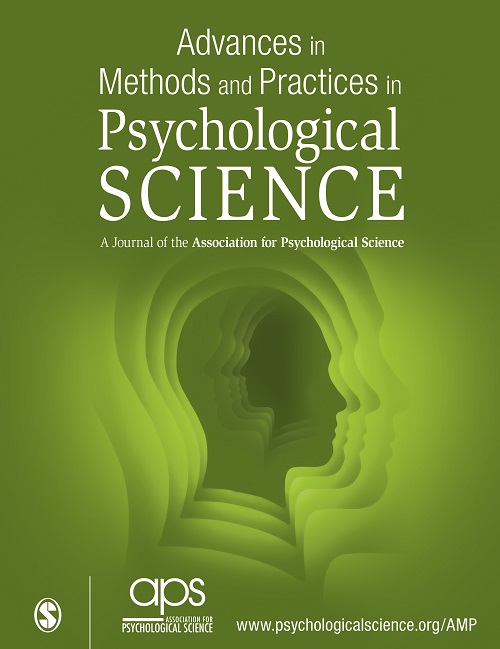PsyBuilder: An Open-Source, Cross-Platform Graphical Experiment Builder for Psychtoolbox With Built-In Performance Optimization
IF 15.6
1区 心理学
Q1 PSYCHOLOGY
Advances in Methods and Practices in Psychological Science
Pub Date : 2022-01-01
DOI:10.1177/25152459211070573
引用次数: 1
Abstract
Psychtoolbox is among the most popular open-source software packages for stimulus presentation and response collection. It provides flexibility and power in the choice of stimuli and responses, in addition to precision in control and timing. However, Psychtoolbox requires coding in MATLAB (or its equivalent, e.g., Octave). Scripting is challenging to learn and can lead to timing inaccuracies unwittingly. It can also be time-consuming and error prone even for experienced users. We have developed the first general-purpose graphical experiment builder for Psychtoolbox, called PsyBuilder, for both new and experienced users. The builder allows users to graphically implement sophisticated experimental tasks through intuitive drag and drop without the need to script. The output codes have built-in optimized timing precision and come with detailed comments to facilitate customization. Because users can see exactly how the code changes in response to modifications in the graphical interface, PsyBuilder can also bolster the understanding of programming in ways that were not previously possible. In this tutorial, we first describe its interface, then walk the reader through the graphical building process using a concrete experiment, and finally address important issues from the perspective of potential adopters.PsyBuilder:一个开源的,跨平台的图形实验生成器,用于心理工具箱,内置性能优化
Psychtoolbox是用于刺激演示和响应收集的最受欢迎的开源软件包之一。它在选择刺激和反应方面提供了灵活性和力量,此外在控制和计时方面也提供了精确性。然而,Psychtoolbox需要在MATLAB(或其等效工具,例如Octave)中进行编码。编写脚本很难学习,可能会在无意中导致时间不准确。即使对于经验丰富的用户来说,它也可能耗时且容易出错。我们为Psychtoolbox开发了第一个通用图形实验生成器,名为PsyBuilder,适用于新用户和有经验的用户。该构建器允许用户通过直观的拖放以图形方式实现复杂的实验任务,而无需编写脚本。输出代码具有内置的优化计时精度,并带有详细的注释,以便于定制。因为用户可以准确地看到代码是如何响应图形界面中的修改而变化的,PsyBuilder还可以以以前不可能的方式增强对编程的理解。在本教程中,我们首先描述了它的界面,然后通过具体的实验引导读者完成图形构建过程,最后从潜在采用者的角度解决重要问题。
本文章由计算机程序翻译,如有差异,请以英文原文为准。
求助全文
约1分钟内获得全文
求助全文
来源期刊
CiteScore
21.20
自引率
0.70%
发文量
16
期刊介绍:
In 2021, Advances in Methods and Practices in Psychological Science will undergo a transition to become an open access journal. This journal focuses on publishing innovative developments in research methods, practices, and conduct within the field of psychological science. It embraces a wide range of areas and topics and encourages the integration of methodological and analytical questions.
The aim of AMPPS is to bring the latest methodological advances to researchers from various disciplines, even those who are not methodological experts. Therefore, the journal seeks submissions that are accessible to readers with different research interests and that represent the diverse research trends within the field of psychological science.
The types of content that AMPPS welcomes include articles that communicate advancements in methods, practices, and metascience, as well as empirical scientific best practices. Additionally, tutorials, commentaries, and simulation studies on new techniques and research tools are encouraged. The journal also aims to publish papers that bring advances from specialized subfields to a broader audience. Lastly, AMPPS accepts Registered Replication Reports, which focus on replicating important findings from previously published studies.
Overall, the transition of Advances in Methods and Practices in Psychological Science to an open access journal aims to increase accessibility and promote the dissemination of new developments in research methods and practices within the field of psychological science.

 求助内容:
求助内容: 应助结果提醒方式:
应助结果提醒方式:


